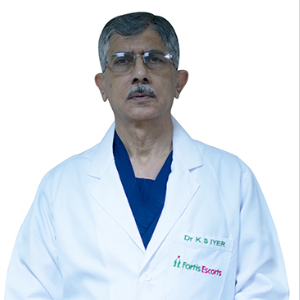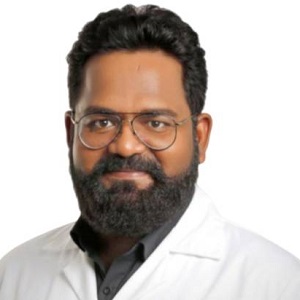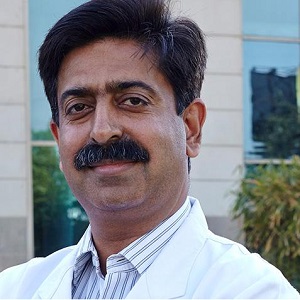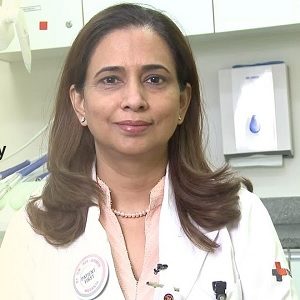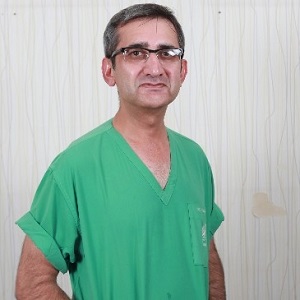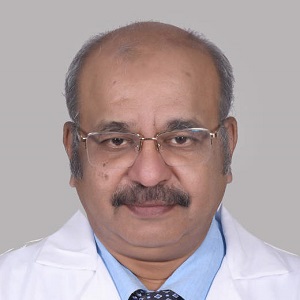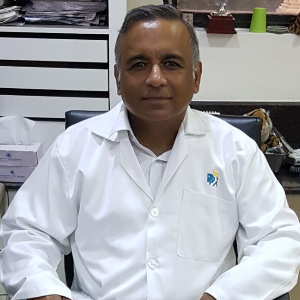Best Doctors in India for Alcoholic Hepatitis Treatment
- Top Pediatric Cardiac Surgeon | Fortis Escorts, New Delhi, India
- 40+ Years Experience
- Fortis Escorts Heart Institute New Delhi
Profile Highlights:
- Dr. Krishna Subramony Iyer is one of the best Pediatric Cardiac surgeons in India and specializes in congenital heart diseases.
- He has been practicing pediatric cardiac surgery for over 4 decades and has performed more than 10,000 surgeries through various procedures like double switch operation TAPVC repairs, Fontan and Fontan, arterial switch, and DORV.
- Dr. Iyer has been associated with Escorts Heart Institute for a long time and is responsible for establishing the first pediatric cardiac care program in North India in 1995.
- Vascular Surgeon, Gurugram, India
- Over 20 years’ experience
- Fortis Memorial Research Institute
Profile Highlights:
- Dr. Himanshu Verma is a highly skilled Vascular Surgeon with over a decade of experience in India and the USA, including training at the renowned Mayo Clinic. His expertise lies in treating complex vascular diseases using advanced endovascular techniques and open surgical methods.
- Presently, he is associated with Fortis Memorial Research Institute as a Consultant Vascular Surgeon.
- Dr. Verma focuses on a wide range of conditions, including aortic aneurysms, redo vascular procedures (for cases where previous treatments have failed), peripheral gangrene, varicose veins, and diabetic foot issues.
- He is particularly noted for performing intricate vascular surgeries under local anesthesia, which helps minimize risks and reduce hospital stays for his patients.
- One of Dr. Verma’s notable achievements is his extensive experience with over 5,000 complex AV fistula surgeries for dialysis patients, showcasing his proficiency in managing critical vascular access needs.
- Ophthalmologist, Eye Surgeon, Gurugram, India
- Over 18 years’ experience
- Fortis Memorial Research Institute
Profile Highlights:
- Dr. Neeraj Sanduja is a well-trained Ophthalmologist, with huge experience in the management of vitreoretinal conditions. Currently, he is serving as a Senior Consultant in Ophthalmology at Fortis Hospital, Gurgaon.
- He is known to perform around 60 FFA and 75 Lasers treatments in OPD in a month. He is actively involved in ROP screening and treatment awareness programs.
- His previous experience includes a stint at William Beaumont Hospital, Michigan, the USA as a Visiting Fellow in Paediatric Retina.
- Nephrologist, Gurugram, India
- Over 15 years’ experience
- Medanta-The Medicity, Gurgaon
Profile Highlights:
- Dr. Manish Jain is a leading Nephrologist and Renal Transplant Specialist in Delhi NCR, known for his exceptional work in the field of renal medicine.
- With a career spanning over two decades, Dr. Jain has made significant contributions to nephrology, renal transplantation, and dialysis.
- His dedication to the field has earned him prestigious awards, including the Fellow of Indian College of Physicians (FICP) and Fellow of Indian Society of Nephrology (FISN), in recognition of his outstanding contributions to nephrology and community service.
- Dentist, Gurugram, India
- Over 23 years’ experience
- Medanta-The Medicity, Gurgaon
Profile Highlights:
- Dr. Amrita Gogia is a highly experienced Pediatric Dentist with over 30 years of expertise, specializing in Pediatric Dentistry and Dental Sleep Medicine.
- Currently, she leads the Department of Dental Sciences as an Associate Director of Dentistry at Medanta – The Medicity in Gurugram along with managing three clinics across Delhi/NCR.
- Her work includes a range of procedures such as fillings, minimally invasive treatments, root canals, crowns, and extractions for children.
- Additionally, she is skilled in managing dental phobias in both adults and uncooperative children through tailored approaches, including modern endodontic techniques and conscious inhalation sedation.
- Top Bariatric & Laparoscopic Surgeon | Max Hospital, Saket, New Delhi, India
- 28+ Years Experience
- Max Super Specialty Hospital, Saket, New Delhi
Profile Highlights:
- Dr. Soni joined Max Healthcare as a Senior Consultant Surgeon, where she quickly ascended to the role of Director, solidifying her reputation as a leader in metabolic and bariatric surgery.
- Dr. Vandana Soni is a distinguished Senior Director at the Max Institute of Laparoscopic, Endoscopic, and Bariatric Surgery, with over 28 years of extensive experience in the field.
- Renowned for her expertise in laparoscopic and minimal access surgery, Dr. Soni has been a trailblazer since 1996, navigating the challenges of a male-dominated field with remarkable determination and skill.
- Top General Surgeon, Advanced Laparoscopic Surgeon | Apollo Hospital, New Delhi, India
- 23+ Years Experience
- Indraprastha Apollo Hospital, New Delhi
Profile Highlights:
- Dr. Faisal Mumtaz is a General Surgeon based in New Delhi and has an experience of 23 years in this field.
- Dr. Faisal Mumtaz practices at Indraprastha Apollo Hospitals, New Delhi.
- He completed his MBBS from Aligarh Muslim University in 1991 and MS – General Surgery from Aligarh Muslim University in 1994.
- He is a member of the Association of surgeries of India and Laparoscopic treatment of cholecystogastric fistula, Surgical Laparoscopy, and Endoscopy.
- Some of the services provided by Dr. Faisal Mumtaz are Piles Surgery, Endosurgery, Incisional Hernia, Breast Reduction Surgery, Vaser Liposuction, etc.
- Top Radiation Oncologist | Apollo Hospital, New Delhi, India
- 20+ Years Experience
- Indraprastha Apollo Hospital, New Delhi
Profile Highlights:
- Dr. G K Jadhav is one of the leading radiation oncologists in India.
- He has a complex understanding of cancer biology, clinical care, and radiation physics.
- Dr. Jadhav has an experience of more than 20 years in the field of radiation oncology.
- Top Pediatric Orthopedic Surgeon | Apollo Hospital, New Delhi, India
- 28+ Years Experience
- Indraprastha Apollo Hospital, New Delhi
Profile Highlights:
- With over 28 years of dedicated experience, Dr. Ramani Narasimhan stands out as a leading Paediatric Orthopaedic Surgeon at Apollo Hospitals Indraprastha, New Delhi.
- His extensive qualifications include an MBBS, an MS in Orthopaedic Surgery, and a Fellowship in Paediatric Orthopaedic Surgery, underscoring his profound expertise and commitment to child orthopaedic care.
- Dr. Narasimhan specializes in the treatment of a wide array of paediatric conditions, from Achilles tendon ruptures and ankle sprains to more complex issues such as cerebral palsy and carpal tunnel syndrome.
- Top Liver Transplant Surgeon and HPB Surgeon | Rela Hospital, Chennai, India
- 30+ Years Experience
- Dr. Rela Institute & Medical Centre
Profile Highlights:
- Dr. (Prof.) Mohamed Rela is known as one of the best liver transplant surgeons in the world. His name has also entered the Guinness Book of Records for performing liver transplantation of a 5-day-old baby.
- With more than 30 years of experience, Dr. Rela is known as a pioneer in liver transplantation & hepatopancreatobiliary (HPB) surgery.
- Dr. Mohamed Rela is the Chairman and Director of Dr. Rela Institute and Medical Centre, Chennai, India; and the Professor of Liver Surgery and Transplantation, at King’s College, Hospital in London as well.
- During his career of almost 30 years, Dr. Rela has performed over 4500 liver transplantations worldwide.
Best Hospitals in India for Alcoholic Hepatitis Treatment
ALCOHOLIC HEPATITIS
Alcoholic hepatitis is a liver infection, which is mainly caused by frequent, heavy use of alcohol. Fat can build up in the liver cells, which might lead to inflammation as well as scarring of the liver.
Alcoholic hepatitis might be mild or severe. A patient might even need a liver transplant if proper treatment is not provided, or if they don’t stop consumption of alcohol.
It is also notable that all heavy drinkers don’t develop this condition, and sometimes this condition even develops in people who drink moderately. However, if you are diagnosed with this condition, it is important for you to quit drinking alcohol. People who continue drinking alcohol might face a huge risk of serious liver damage as well as death.
Symptoms
Depending on the amount of damage to the liver, the symptoms can vary. If you are having a mild form of the disease, you might not even experience any symptoms at all. However, as the damage continues to grow, you might experience the following:
- Changes in appetite
- Dry mouth
- Weight loss
- Pain or swelling in the abdomen
- Jaundice, or yellowing of the skin or eyes
- Fever
- Nausea and vomiting
- Easy bleeding or bruising
- Changes in your mental state, including confusion
- Fatigue
The symptoms of this condition are similar to those caused by a few other health conditions. Therefore, if you develop any of these symptoms, it is best to get a proper diagnosis as well as begin treatment.
Causes & risk factors
Alcoholic hepatitis generally develops when the alcohol you drink causes damage to your liver. However, it is not clear why alcohol does this damages only to some heavy drinkers.
Few factors that are known to play a role in this condition include:
- The body’s process that breaks down alcohol produces some toxic chemicals
- These chemicals can trigger inflammation that can destroy the liver cells
- Thus, over time, scars replace healthy liver tissue, thus interfering with the function of the liver
- This irreversible scarring, which is also termed cirrhosis, is the final stage of alcoholic liver disease
If you have hepatitis C and continue to drink, even moderately, you are more likely to develop cirrhosis.
Some heavy drinkers are also malnourished because they don’t eat a proper balanced diet. Alcohol and its byproducts also prevent the body from absorbing nutrition properly. Lack of nutrition can contribute to liver cell damage.
Some other risk factors that can lead to this condition include:
- Your sex- Women are usually at a higher risk of developing alcoholic hepatitis since the way alcohol is processed in women is different.
- Binge drinking- Having over five drinks within two hours for men and four or more for women can increase the risk of alcoholic hepatitis.
- Obesity- Heavy drinkers who are overweight are also more likely to develop alcoholic hepatitis and to progress from that condition to cirrhosis.
- Race and ethnicity- Hispanic and Negroid people might be at higher risk of alcoholic hepatitis.
- Genetic factors- According to studies, there may be a genetic component in alcohol-induced liver disease. However, it is difficult to separate genetic and environmental factors.
Diagnosis
If you are showing symptoms of alcoholic hepatitis, your doctor will first inquire about your medical history and alcohol consumption. Next, he/she will perform a physical exam to see if you have an enlarged liver or spleen. They might also need a few more tests to confirm your diagnosis, such as:
- Complete blood count (CBC)
- Liver function test
- Ultrasound of the liver
- Abdominal CT scan
- Blood clotting tests
In some cases, a liver biopsy might also be needed to confirm the diagnosis of alcoholic hepatitis. A liver biopsy requires your doctor to remove a tissue sample from your liver, which is then tested in the lab. This method helps to show the severity and type of liver disease.
Treatment
Stopping alcohol consumption is the most important treatment for alcoholic hepatitis. There is no cure for this condition, but treatment can help in reducing or eliminating symptoms, or stopping its progression.
It is also important to note that scarring of the liver is permanent, but treatment can aim to restore as much function as possible.
Dietary changes
Medication
Liver transplant
The best hope of recovery is to be aware of the signs and symptoms as well as to reduce, manage, or if possible, completely stop consumption of alcohol.
Complications
Alcoholic hepatitis might lead to severe other complications such as:
- Enlarged veins (varices)- In this condition, blood that is unable to flow freely through the portal vein, can back up into other blood vessels in your esophagus or stomach.
- Hepatic encephalopathy- This condition can be caused by the buildup of toxins if your damaged liver is unable to remove all the toxins from your body. It involves confusion, drowsiness, and slurred speech.
- Ascites- Ascites is a condition in which the fluid that accumulates in the abdomen may get infected and thus, require treatment with antibiotics. Although this condition is not life-threatening, it can be a sign of advanced alcoholic hepatitis, or cirrhosis.
- Kidney failure- A damaged liver affects blood flow to the kidneys, thus resulting in kidney failure.
- Cirrhosis- The scarring of the liver might lead to liver failure.
Prevention
Alcoholic hepatitis might be prevented if you take the following steps:
- Drink alcohol in moderation, if at all- For healthy adults, moderate drinking means no more than one drink a day for women of all ages and men older than 65, and not over two drinks a day for men aged 65 and younger. However, if you prevent all alcohol, it is a certain way to prevent this condition.
- Check before mixing medications and alcohol- Ask your doctor if it’s safe to drink alcohol while you are taking medications. Consider reading the warning labels on over-the-counter medications as well. Don’t drink alcohol when you are taking medications that warn of complications when combined with alcohol.
- Protect yourself from hepatitis C- Hepatitis C is an infectious liver disease that is caused by a virus. If it is left untreated, it may lead to cirrhosis. If you are having hepatitis C and you consume alcohol, you’re generally more likely to develop cirrhosis than if you don’t drink.

